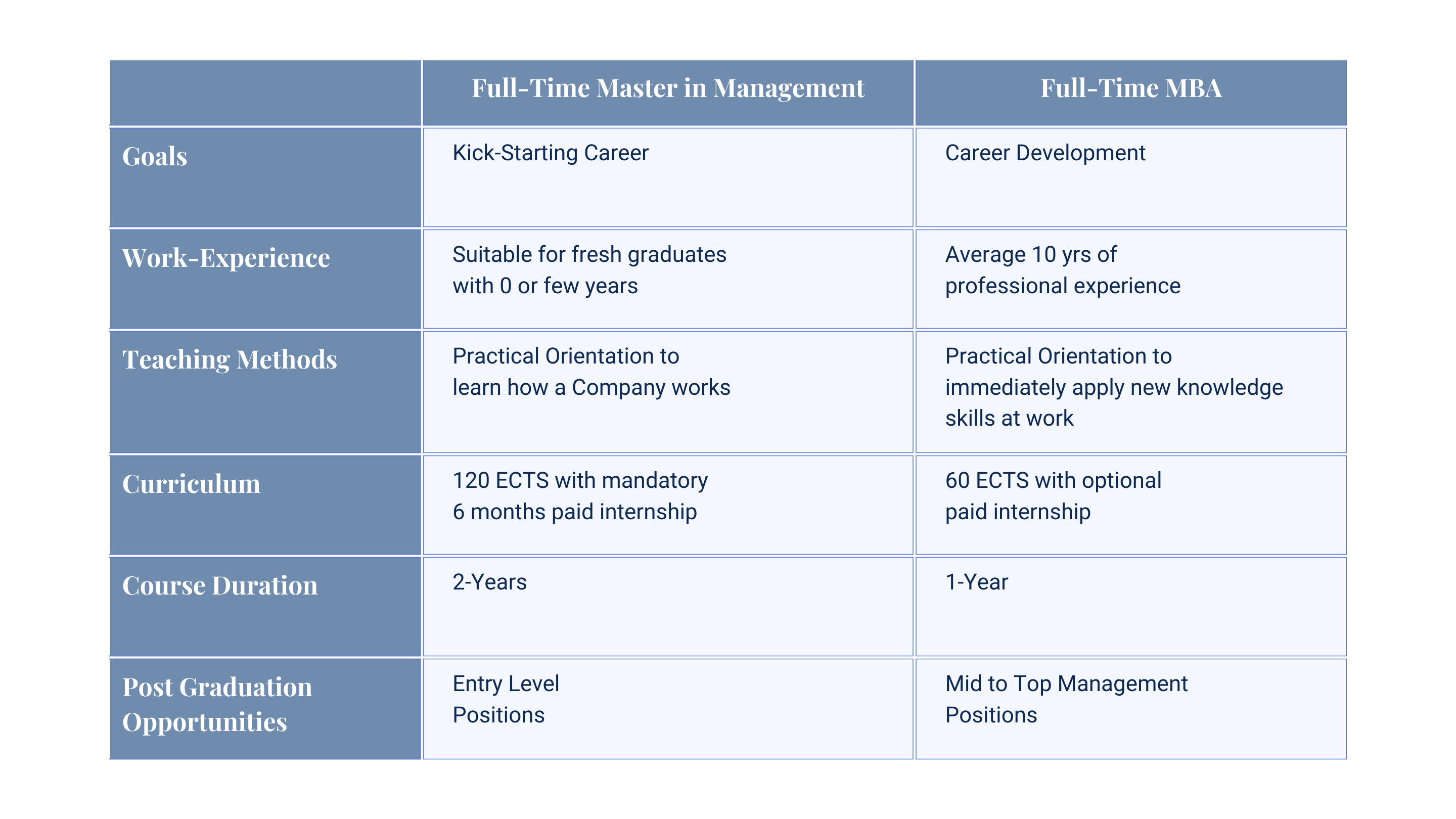How To Choose Between An MBA And A Master In Management (MiM) Degree?
How To Choose Between An MBA And A Master In Management (MiM) Degree?

When comparing an MBA to a Master in Management (MiM), there are several key factors to consider. The main difference is that MBA programs prepare students for Senior Management and Leadership roles whereas MiM programs give you a solid starting point for jumping into the business world.
If you have been working for three years or more, and you’re between 26 and 45 (or even older), then an MBA is likely the better option for you. It is perfect if you want to move up quickly into higher leadership positions or if you are thinking about changing your career path entirely.
If you’re under 26, just out of college, or have worked for less than two years, a Master in Management (MiM) is your best choice.
Who is it for?
- Seeking to develop your Career (MBA)
Many people opt for an MBA as a step to advance in their careers. It’s a favored choice for those aiming to boost their salary or switch to a different field of work. An MBA opens up new doors and assists in achieving professional aspirations.
- Seeking to start your career (MiM)
On the other hand, MiMs are specifically designed for those at the very start of their business careers.
Course and Curriculum:
At LSB all courses are about learning by doing.
But in the MBA they teach you skills you can use in real jobs and give you a chance to practice these skills. This helps prepare you for the kinds of problems you’ll solve in the workplace. In MBA programs, you learn a lot about specific areas of business, which is great for people who already know about working in complex business environments.
MiM courses, however, focus more on general learning. They teach you the ideas and theories about business, which is really helpful for people who are just beginning their professional journey. They give you important knowledge about business that’s really useful to understand the foundations of a Company.
MiM vs MBA comparison has no winner. Both Master in Management (MiM) & MBA are phenomenal degrees its just made for different audiences.

